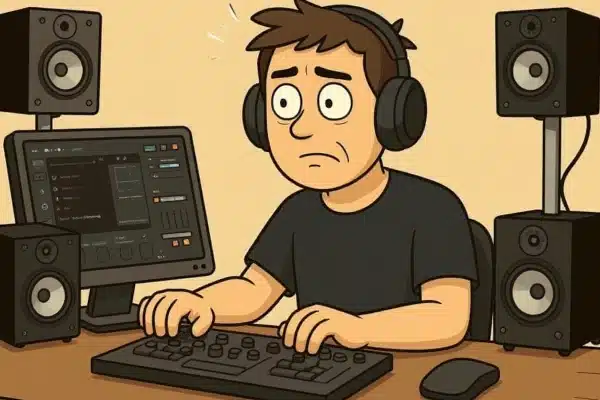In the age of laptops, affordable DAWs, and endless plugins, many artists ask themselves a common question: do I really need a professional studio to mix my music?
On the surface, it seems like anyone can achieve professional results at home. After all, software has never been more powerful, and tutorials are everywhere. But when it comes to mixing music, the decision isn’t only about tools — it’s about psychology, experience, and the listening environment.
This article will explore the pros and cons of home mixing versus hiring a professional music recording studio and why the right choice depends on your goals as an artist.
The Rise of Home Mixing
With access to affordable audio interfaces, MIDI controllers, and stock plugins, home setups are more capable than ever. For emerging musicians, this means mixing music at home is not only possible but practical in the early stages.
Benefits of mixing music at home include:
- Low cost: No need to book studio time or hire a mixing engineer.
- Convenience: Work at your own pace, anytime.
- Creative freedom: Experiment without worrying about deadlines.
Many producers in electronic, hip-hop, and indie genres have launched careers with mixes done entirely in bedrooms. In fact, the DIY ethic has become part of the culture in some scenes.
But here’s the catch: just because you can mix at home doesn’t always mean you’ll get the best results.
The Challenges of DIY Music Mixing
While modern technology has opened the door for home mixing, it also comes with limitations:
Most bedrooms, garages, or makeshift studios are not acoustically treated. This means sound reflections distort what you hear, leading to mixes that don’t translate on other systems.
Professional studios invest in high-end speakers and headphones that reveal details. A consumer setup often hides flaws, meaning you won’t know what listeners will actually hear.
A mixing engineer has spent years learning how EQ, compression, and balance affect emotion. At home, it’s easy to overprocess or under-mix.
When you’ve listened to your own track hundreds of times, your brain fills in the gaps. A fresh set of professional ears brings clarity.
In short, mixing music at home is great for demos, sketches, and practice — but it often falls short when aiming for release-ready quality.
What Professional Studios Offer
A professional music recording studio is more than just fancy gear — it’s an environment built for accuracy and creativity.
Studios are designed to minimise reflections and resonance, giving you a true representation of your mix. What you hear is what listeners will hear.
Professional speakers and reference headphones allow engineers to catch details that home setups miss, such as subtle vocal sibilance or muddy low-end.
At Moreish Studios, our engineers know how to highlight the emotional core of your song. They bring technical expertise and creative insight to every project.
A professionally mixed track will sound balanced across all systems — from car stereos to club sound systems to streaming platforms. This consistency is key for a professional release.
The Psychology of Professional Mixing
Mixing music isn’t only technical; it’s psychological. First impressions matter, and audiences decide whether to keep listening within seconds. A professional mixing engineer knows how to shape dynamics, balance, and tone to make a track feel immersive right from the start.
That psychological edge is hard to achieve in a home environment. It’s the difference between “this sounds good” and “this sounds like a record.”
When Home Mixing Makes Sense
There are times when DIY music mixing is perfectly fine:
- Creating demos to share with collaborators.
- Experimenting with new ideas or learning the craft.
- Releasing casual projects for fun, not commercial purposes.
If you’re an independent artist just starting out, learning to mix your own music can also help you communicate more effectively with professional engineers later on.
When to Invest in a Professional Studio
For serious projects — singles, EPs, or albums you plan to release on Spotify, Apple Music, or radio — a professional studio mix is usually the smarter choice. Why?
- It ensures your music stands up next to other professionally released tracks.
- It saves time you might otherwise spend endlessly tweaking.
- It gives your music the best chance of making a strong first impression.
In today’s competitive industry, quality is often the difference between being skipped and being remembered.
Finding the Right Balance
The truth is, you don’t always have to choose between home and studio mixing. Many artists combine both approaches:
- Start with a home mix to shape ideas.
- Then bring stems into a professional studio for final polishing.
This hybrid workflow saves money while still ensuring the release is professional.
Final Thoughts
So, do you really need a professional studio to mix music? The answer depends on your goals. If you’re experimenting, learning, or making demos, home mixing is more than enough. But if you’re aiming for a track that stands out on playlists, streaming platforms, and radio, a professional music recording studio with an experienced mixing engineer makes all the difference.
At Moreish Studios, we combine world-class gear, tuned rooms, and years of mixing expertise to bring your music to life. Whether you’re preparing a single or a full album, our team ensures your tracks connect with listeners the way you intended.
Ready to take your mixes to the next level? Book in your project with our Melbourne music mixing studio today and experience the difference professional mixing makes.


